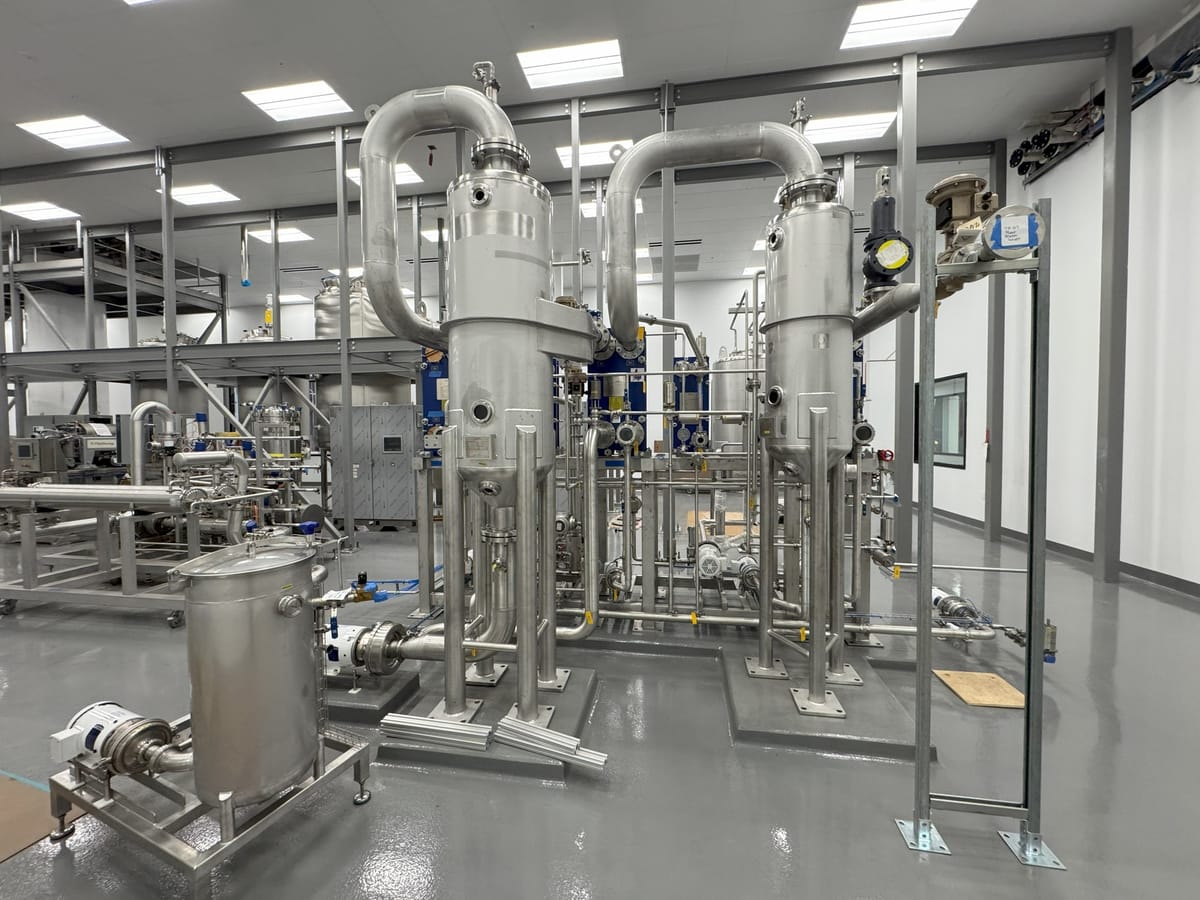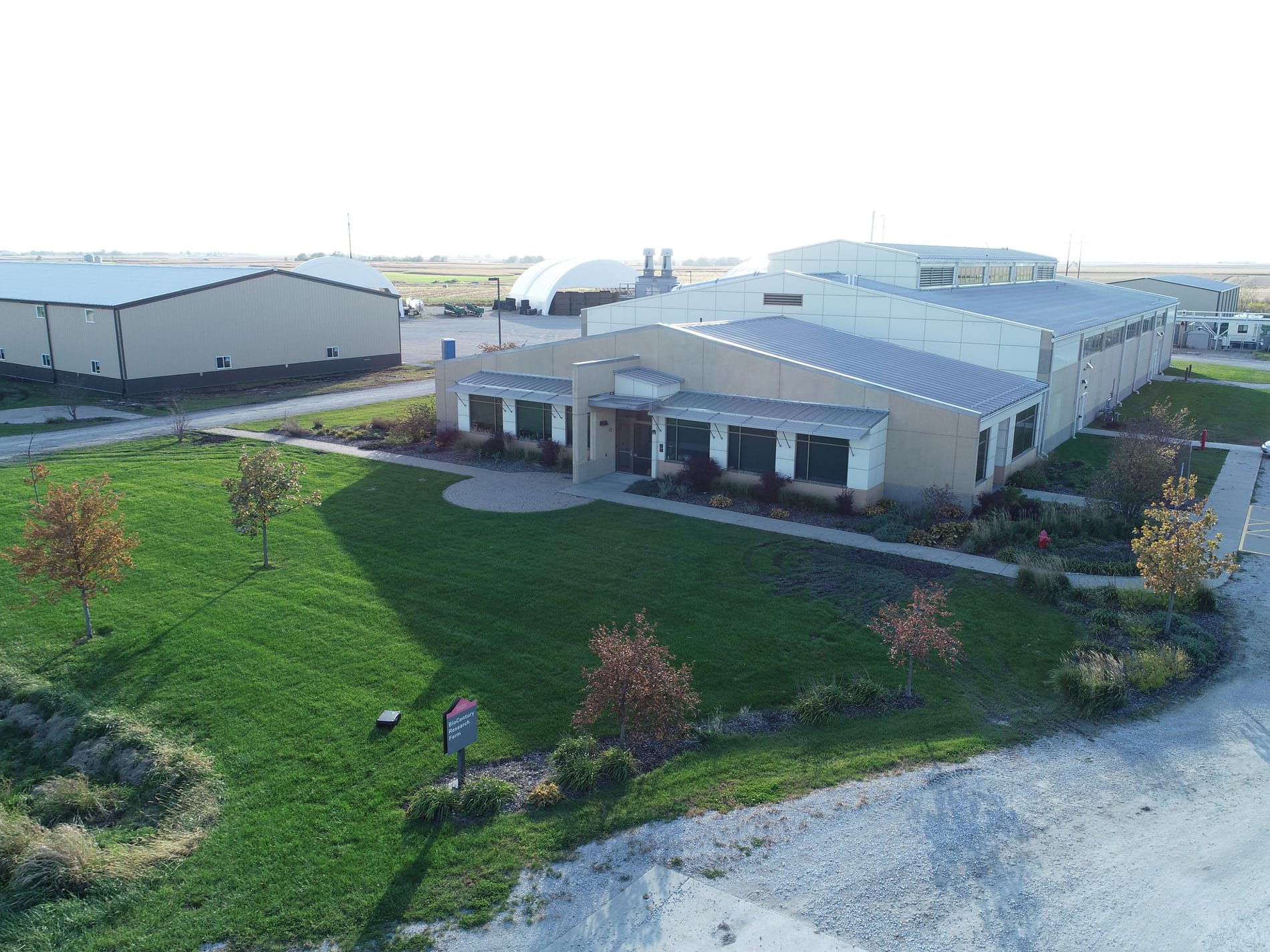

Salt Lake City, Utah – October 7, 2025
As the nation celebrates National Manufacturing Month during the month of October, a new kind of industrial revolution is quietly reshaping America’s production landscape. Instead of furnaces and foundries, this one runs on fermentation tanks, engineered cells, and feedstocks like algae and corn.
The movement has a name: bioindustrial manufacturing—and its national hub is BioMADE (Bioindustrial Manufacturing and Design Ecosystem), a Department of Defense–funded institute leading the charge to make biology a cornerstone of 21st-century manufacturing. Founded in 2020, BioMADE is one of nine DoD Manufacturing USA Institutes, sponsored by the Air Force Research Laboratory in Ohio. Its mission is to connect industry, academia, and government to scale biomanufacturing—using biology to produce materials, fuels, and products that today rely on petrochemicals or imports.

Louise Petruzzella, Director of Education and Workforce Development, BioMADE shared with TechBuzz some of the most surprising and novel bioindustrial innovations, including:
- Squitex, a squid-tooth protein by Tandem Repeat (Philadelphia) used to make self-healing fabrics with unique stretch, strength, and self-healing properties and unparalleled strength and durability.
- Jellyfish collagen, such as mantleskin that is processed into beauty and food products.
- Mushroom-based packaging by Ecovative that is non-toxic, free of harmful forever chemicals, and can be composted at home in 45 days.
- Dandelion-derived rubber developed by Goodyear for military, aircraft and truck tires. While rubber trees typically take seven years to produce the latex needed for rubber production, dandelions can be harvested every six months.
- Plastic-eating enzymes capable of breaking down ocean waste such as Carbios, a French biotech company that has developed proprietary enzymes capable of breaking down plastics into their basic components (monomers), a process known as depolymerization.
- Plant based polymers used in the manufacture of clothing such as Geno, a San Diego-based company collaborating with Canadian clothing retailer Lululemon on plant-based nylon for use in athletic clothing.

“Think of it as unleashing the power of synthetic biology to make things we use every day — from fabrics to fuels — but with renewable feedstocks,” said Petruzzella.
BioMADE has grown from 15 employees to 100 in just a few years. Membership has jumped from under 100 to more than 325, including universities, community colleges, startups, and Fortune 500 companies.
It’s a manufacturing institute — not an incubator or research center — meaning BioMADE funds projects that lead directly to commercial-scale production. Some projects receive tens of thousands of dollars for early-stage research; others run into the multimillion-dollar range, particularly for infrastructure and pilot plant development.
Utah’s Growth in Bioindustrial Manufacturing
Within this national effort, Utah is quietly emerging as a leader. From high school classrooms in the Alpine School District to university research labs and startup facilities across the state, Utah is turning biology into materials, fuels, and advanced products that could reshape industries ranging from aerospace to consumer goods. Central to this progress is the state’s integration of education, workforce development, and entrepreneurial innovation, all supported by BioMADE’s nationwide programs and funding initiatives.
At the heart of Utah’s effort is the Utah Bioindustrial Manufacturing initiative, which aims to establish secondary and post-secondary educational pathways to build a sustainable talent pipeline. The program focuses on creating stackable credentials, increasing access to advanced training, and preparing students for careers in bioindustrial manufacturing.
This initiative aligns with a broader national strategy to expand biomanufacturing infrastructure and create pilot-scale facilities capable of driving biobased products towards industrial scale. While much of the U.S. currently lacks the capacity to grow microbes in 10,000–500,000 liter vessels, Utah’s program simultaneously develops workforce capacity and industrial know-how, positioning the state to meet the coming surge in demand.

“High school and graduate students in Utah are designing low-cost bioreactors that are now used in classrooms statewide,” said Petruzzella. “Faculty from the University of Utah Chemical Engineering department mentor student interns, connecting research directly to classroom applications and career pathways.” By building their own bench-top bioreactors, students gain hands-on experience in microbial cultivation and materials science, skills directly transferrable to industries from industrial biotech to renewable fuels.
The University of Utah’s Deep Tech program and local startup incubators are participating by allowing students and entrepreneurs to transition from prototypes to market-ready products. These efforts dovetail with the larger BioMADE network, linking Utah to a national ecosystem of bioindustrial manufacturing.
Over the next three years, BioMADE plans to launch pilot-scale manufacturing facilities in California (2026), Minnesota (2027), and Iowa (2027), filling a critical gap in U.S. capacity. “The U.S. has world-class biomanufacturing capacity,” Petruzzella noted, “but we lack industrial-scale bioreactors. These pilot plants are designed to change that.”

Tamara L. Goetz, Ph.D., Executive Director of the Utah STEM Action Center, has been working with BioMADE to develop a workforce pipeline aligned with this emerging field. “Utah has a strong bioscience foundation,” Goetz told TechBuzz. “What BioMADE brings is a framework for scaling that innovation into real manufacturing — and making sure we have people trained for those jobs.”
Goetz emphasized the importance of modernizing biotechnology education: “We’re preparing students for careers that go beyond pharmaceuticals and clinical labs into industrial applications. Programs like ours create a pipeline of talent for companies in Utah and nationwide, ensuring students gain the skills needed for tomorrow’s bioindustrial workforce.”
Utah’s approach blends formal education with real-world industry exposure, bridging high school, college, and professional training. Institutions such as Utah Valley University and Salt Lake Community College provide technical instruction and internship opportunities with local companies, creating a robust pipeline from classroom to industry. This model is critical as the bioindustrial sector projects upwards of one million roles nationwide by 2030.
That pipeline is already feeding into emerging companies across the state. CleanJoule, a spin-off of Technology Holding that is headquartered in Salt Lake City, applies bacterial fermentation to produce aviation fuels and other energy products. Focused on industrial microbes and high-value applications, CleanJoule works closely with the Department of Defense on contracts supporting renewable fuel development. Backed by Indigo Partners, Cleanhill Partners, GenZero, Frontier Airlines, Wizz Airlines, and Volaris, CleanJoule has expanded rapidly in Utah, consolidating its processing facilities while providing students and interns with exposure to large-scale bioindustrial operations.
Beyond Utah: Implications for National Innovation
Utah’s work illustrates how regional ecosystems can catalyze national progress in bioindustrial manufacturing. By connecting K–12 education, university research, and private-sector collaboration, the state is not only producing a skilled workforce but also incubating technologies with cross-industry impact. From algae-based polymers to bacterial biofuels, Utah’s model demonstrates the power of integrating education, research, and entrepreneurship in building the bioindustrial future.
For the Department of Defense and the broader U.S. economy, these efforts are critical. Bioindustrial manufacturing reduces reliance on imported petroleum, enables sustainable production of high-value materials, and provides the skilled labor pipeline necessary for national security and industrial competitiveness.
With its powerful combination of education, industry, and government support, Utah is poised to become a national hub for bioindustrial manufacturing. BioMADE’s Utah Bioindustrial Manufacturing initiative shows that a small state can have a disproportionate impact on workforce development, innovation, and sustainability.
To learn more, visit biomade.org and Utah Stem Action Center.

